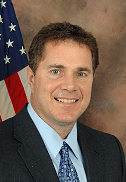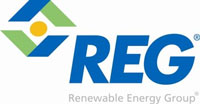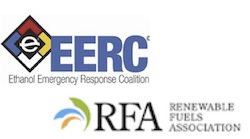 Innovative ideas in solid catalysts could open new opportunities in the biodiesel market. This article from The American Oil Chemists’ Society’s Inform magazine says Benefuel’s new proprietary solid catalyst process will convert inedible oils and fats into biodiesel, turn both glycerides and free fatty acids into alkyl esters for industrial use, and do it all cheaper than other esterification or transesterification processes.
Innovative ideas in solid catalysts could open new opportunities in the biodiesel market. This article from The American Oil Chemists’ Society’s Inform magazine says Benefuel’s new proprietary solid catalyst process will convert inedible oils and fats into biodiesel, turn both glycerides and free fatty acids into alkyl esters for industrial use, and do it all cheaper than other esterification or transesterification processes.
To us, the path ahead was clear: The biodiesel industry needed a fully continuous, fully integrated production refinery for biodiesel—one that could receive a variety of feedstocks and process them continuously to biodiesel and glycerin. The fixed-bed reactor design and our new catalyst were at the heart of this approach. Although the wide versatility of our catalysts for esterification and transesterification were well recognized, development of other applications had to wait for process validation in biodiesel.
Benefuel’s Ensel® fixed-bed process is quite simple. It employs our second solid catalyst, which was developed in conjunction with Süd-Chemie India Pvt. Ltd. (Kerala)and patented in the United States and Japan (US 8,124,801 and JP 5,470,382) with applications in other countries.
This durable, promoted, metal oxide catalyst is largely insensitive to water and effectively converts every feedstock that has been tested in numerous pilot plant-scale operations. Examples include degummed soybean oil, cottonseed oil, corn oil from dried distillers’ grains with solubles, yellow grease, beef tallow, crude palm oil, palm fatty acid distillate, and even a mixture of degummed soybean oil and oleic acid (7:3, vol/vol).
The article goes on to list several advantages to using a solid catalyst, including economic—continuous production at commercial scale regardless of changes in feedstocks or feedstock blends; a catalyst life of several years instead of “catalyst as reagent,” as in conventional biodiesel production; and an ability to blend feedstocks to achieve optimal cold-flow properties in the final product at a low raw material cost.
Benefuel is retrofitting a biodiesel plant with this technology, the former Axens’ biodiesel plant in Beatrice, Nebraska. The company is also pursuing other opportunities in Southeast Asia and Canada.









